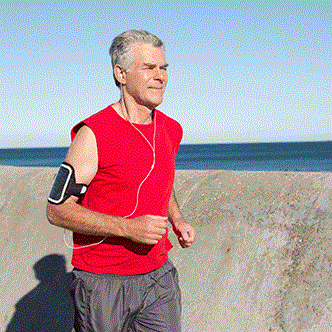
There’s no question that air pollution and heat waves can have a negative impact on health. Not only can these environmental factors trigger or cause certain heart problems, they can cause complications in patients with existing heart conditions. Since patients in cardiac rehab are especially vulnerable to such complications, experts wondered how air pollution and temperature impact their road to recovery.
To learn more, researchers followed more than 2,000 patients enrolled in a cardiac rehab program at the University of Michigan between 2003 and 2011. Participants either had a chronic condition like heart failure or chest pain or were recovering from a recent heart event or procedure.
As part of the standard cardiac rehab program, patients received exercise training, counseling on cardiac risk factors and education on heart-healthy living. Patients also underwent a treadmill test that tracked heart rate and oxygen levels to test their exercise ability.
During the study period, researchers also tracked changes in outdoor temperatures and levels of air pollution called fine particulate matter. Fine particulate matter is particles found in the air that are so small they can be inhaled and go deep into the lungs, having an adverse effect on health.
After comparing results of exercise tests with environmental factors, researchers found that short-term rises in temperature and air pollution had a negative impact on exercise ability. For example, patients didn’t perform as well in exercise tests if they were exposed to higher levels of air pollution within the past week. And for every 18 degree Fahrenheit increase in temperature, the lower a patient’s exercise capacity was.
The concern is that exercise ability is one of the strongest determinants of quality of life and outcomes for heart patients. Patients with a higher exercise capacity often do better than patients that are less fit and active. Therefore, if factors like air pollution and temperature are hindering patients’ exercise capacity in cardiac rehab, it could have a negative impact on both quality of life and outcomes.
As authors explain in Heart, a journal of the British Cardiovascular Society, it’s important to take these factors into account when interpreting results of exercise tests, especially in cardiac rehab. Environmental factors may have a significant impact on exercise results and it’s important that patients and clinicians understand the role of environmental factors on cardiovascular health.